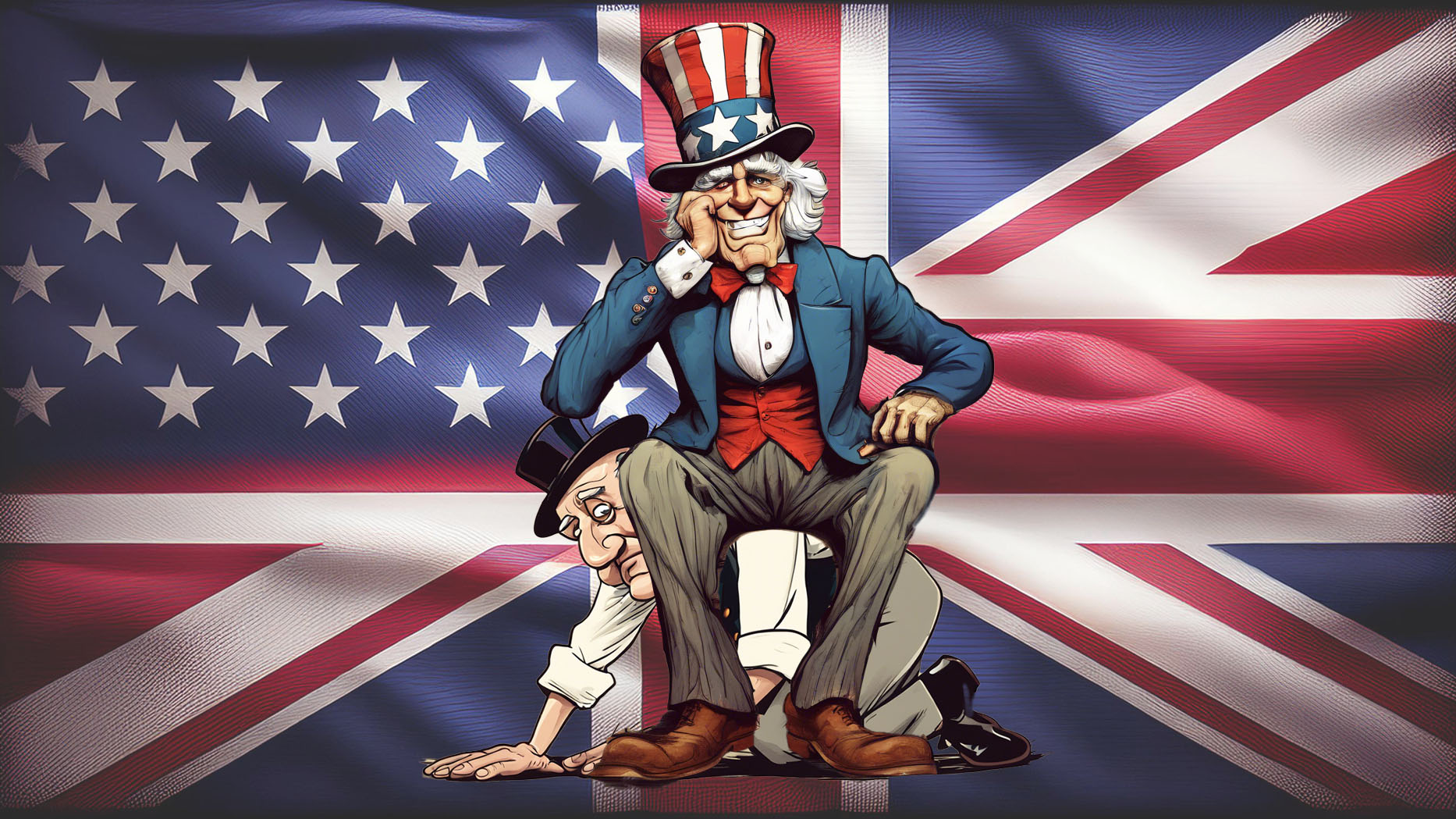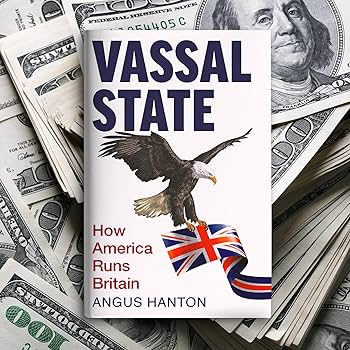
Extent of UK’s vassal-dom to US shown by stunning new study
January 13, 2025

Quiz: Which of the following stores you find on high streets all over the UK are American and which are British?
1. Boots (chemist)
2. Waterstones (bookshop)
3. McDonalds (fast food)
4. Morrisons (supermarket)
5. Gail’s (bakery)
6. Majestic Wine (alcoholic drinks)
7. KFC (fast food)
8. Costa (coffee)
Did you find that difficult or easy?
I guess the real answer to that question depends on a different question: how many did you get right?
And here’s the solution. All the high street brands named above are US-owned. Yes, all of them. And that’s despite the fact that they dominate high streets through the UK.
Costa, for example, is considered to be the British version of Starbucks. But it is actually owned by the Coca-Cola Company.
BRITISH CHICKEN
But does the US really own the UK’s high streets? Can that be right? After all, the British tend to be very patriotic and many residents will go out of their way to buy products labelled “British chicken” and bearing little Union Jack logos, for example.
But even there, people get it wrong. Most British meat, however it is labelled, is actually controlled by conglomerates from the United States.
The information above comes from a new book called “Vassal State” by the acclaimed economist Angus Hanton. The book meticulously examines the relationship between the UK and the US. Hanton’s conclusion is summed up by the subtitle of his book: “How America runs Britain”.

The story he tells is shocking but also somehow unsurprising. Consider how the average UK office worker spends his or her day.
They grab a Costa coffee (American) on the way to work and then sip it while working on MS Word or Excel or Google Docs (American) on computers by Apple or Dell (American).
They take a break to search using Google (American). When they find something they want, they shop online on Amazon (American) or eBay (American).
Then they go home and watch Hollywood movies (American) on Netflix (American).
While doing this, they glance at their phones, powered by Apple (American) or Android (American), where they keep an eye on Facebook (American), X (American), or Instagram (American).
When they’re not doing this, they are playing computer games (American) or flicking through Mr Beast videos (American) on YouTube (American).
They end their day with a meal of British chicken (American).
THE, ER, SPECIAL RELATIONSHIP
Now you may say that that describes pretty much all western countries, not just the UK.
That may be so, but the UK is still special. The US has put more investment money in the UK than in the rest of Europe combined, Hanton points out. America has purchased the UK and owns it.
Read this book and suddenly a lot of puzzling things make sense.
Why is the UK supporting the utterly unsupportable slaughter of innocents in Gaza?
Why do British journalists pretend to believe the obvious lies about China?
Why has coverage of the Ukraine war been so ridiculously one-sided?
Why does Britain obediently demonize the countries the US demonizes?
The answer is simple. The leaders of the UK (and most of Europe) have sold out so totally to the US for so many years, that they really have no sovereignty left. British politicians and journalists are feeding a narrative written on the other side of the Atlantic Ocean.
THE LONG-TERM EFFECT
Does this matter? After all, the UK no longer has a global empire and has to subsist as a small country, with all the dependencies that implies.
The quick answer is: yes, it does matter. Because the citizens are shopping on Amazon, 6,000 British shops have closed permanently just in the past five years, the British Retail Consortium calculates.
New customers are desperately needed. China now has the world’s biggest middle class, and the UK needs to revive its relationship with it—but British mainstream journalists work hard to torpedo this possibility by constantly recycling tired old atrocity fictions from the US State Department and the CIA.
Then there’s the problem that the US ends up with all the money (US companies don’t like to pay tax in the UK). The London Stock Exchange’s biggest 350 companies ADDED TOGETHER are now worth less than Microsoft.
SELF-DELUSION
The book is shocking, but not been universally accepted. It has had its critics. The Times of London acknowledges that “this is America’s world and we are all living in it” but says that this is okay because the US has by far the world’s biggest army.
“This military provides a shield that protects Britain”, the Times says, as if the UK’s neighbors were planning to invade it any day now. (The Times write-up usefully encapsulates the British elites’ self-delusion.)
The problem that Hanton describes is going to get worse.
Britain wants to tax US online retailers with a digital sales tax. But when France made the same proposal, in 2019, Donald Trump gave his ruling on the plan. “WE tax our companies; THEY don’t tax our companies.” Mr Trump is back in power.
EUROPE’S BIG MISTAKE
The irony of all this can best be seen from China.
For decades, China has been reviled by every western mainstream journalist for having a firewall that keeps the big US tech giants out – and enables homegrown tech companies to flourish.
Look at today’s numbers and it becomes clear that Europe and the UK should have done the same thing.
By trusting America to own the technological future of the west, they have sacrificed their own prospects.
The UK can be seen as a US state that thinks it is a respected partner with a “special relationship”. In fact it is a remote cash cow that the US is milking.
Nury Vittachi, Ceylon born resident in Hong Kong , is a total lackey of the Communist Party of China.
ReplyDelete